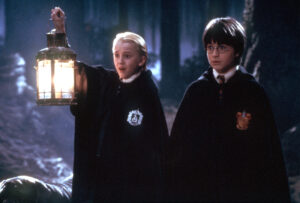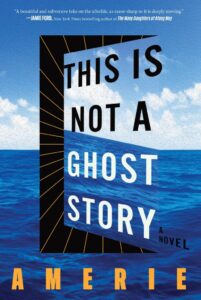The Sad Fate of Mon Mothma’s Husband Is One of Andor’s Most Striking Lessons

Spoiler Alert: This article contains potential spoilers for Andor season two.
Andor’s second and final season concludes with a montage that offers us brief glimpses of its characters’ ultimate fates. Series namesake Cassian Andor fully embraces his role as a rebel leader as he strides through the Yavin IV compound and leaves for Kafrene, heading directly into the events of 2016’s Rogue One. (Not surprisingly, one clever YouTuber has already spliced the Andor and Rogue One scenes together.)
Season two standout Kleya Marki, once fearful of traveling to Yavin IV because of her covert (and controversial) work with Luthen Rael, seems to finally accept her new home. Dedra Meero has lost everything; once a rising star in the Imperial Security Bureau, she’s now just another prisoner in an imperial gulag, and in the montage’s grimmest moment, breaks down weeping in the dark. Finally, Bix is back on the agricultural world of Mina-Rau. As she stands in the middle of a golden field, we learn why she left Cassian as she comforts their young child and looks wistfully off into the distance.
Accompanied by Brandon Roberts’s evocative score, this sort of montage is perhaps the only way the series could’ve ended, giving us some measure of resolution while still acknowledging that the rebellion, and the war, is far from over.
. . . Andor further muddies the waters by making Perrin—to all external appearances, anyway—a decent and respectable guy.
All of the various characters’ scenes are striking, but one moment is particularly haunting. After we see former imperial senator Mon Mothma now sitting amongst the rebels on Yavin IV, possibly contemplating her life choices, we cut to a shot of her husband Perrin, who is soaring through the Coruscant skies in an aerial limo, a distant look on his face as well. Another woman is asleep beside him, though, her head on his shoulder and a bottle of alcohol in her lap. As he passes through the scene, Perrin takes a long drink, his entire demeanor radiating disappointment and regret.
It’s a far cry from how Perrin is depicted in the preceding episodes. Whereas his wife is a driven and idealistic senator from the planet of Chandrila (who also happens to be secretly funding the burgeoning Rebellion), Perrin is vacuous, flamboyant, and decadent. He fully enjoys the comfort and privilege afforded by his wife’s wealth and political position and does his best to avoid anything remotely unpleasant.
When Mon expresses political concerns, Perrin responds with a pained and frustrated “Must everything be boring and sad?” When he gets chummy with her political opponents, he dismisses her objections, saying “You’re at the boring end of the table. These people are fun.” Perrin increasingly becomes the epitome of an empty-headed pretty boy, and nowhere is that seen more clearly then the toast he gives at their daughter’s extravagant wedding:
My hope is that you learn to reach past this constant cloud of sadness. Pleasure. Gaiety. Amusement. These are the hidden things. The music buried beneath all that noise… Joy… But joy has no wind at its back. Joy will not announce its arrival. You need to listen for it and be mindful of how fleeting and delicate it can be. But search out these treasures. A moment of pleasing sensation, the memory of laughter and good company, the comfort of a fine meal. And for me… For me, right now, it’s the smile that I can’t hide as I see these two young people sharing our greatest tradition.
There is some truth in Perrin’s speech. Laughter, good company, a fine meal—these are all certainly worth celebrating. And true joy can, indeed, be fleeting and hidden and must often be sought out. But for all of its truth, Perrin’s speech ultimately reveals his shallowness. It reveals that for him, comfort and pleasure are all that really matter; they’re the only things worth chasing and pursuing in life. Such a pursuit necessarily precludes discomfort, struggle, and hardship, all of which are difficult to avoid if one’s trying to live a life that most would consider good and moral. And if one’s trying to overthrow a galactic tyrant and his fascist forces, then such things will be an absolute necessity.
Ironically, Perrin wasn’t always like this. Earlier in the series, we learn that he was the “academy firebrand” in his youth, something of a rabble rouser. But somewhere along the way, that fire, that spirit, that rebellion leeched its way out of Perrin’s spirit, and he surrendered himself to hedonism.
Perrin is never depicted as an outright villain. He’s no “space Nazi” like Dedra Meero, Orson Krennic, Lio Partagaz, or Dr. Gorst, nor is he obsessed with cold bureaucratic detail like the tragically single-minded Syril Karn. Indeed, it’s not so hard to imagine how Perrin might have relinquished his firebrand status. As he grew older, perhaps he saw which way the galactic winds were blowing and, reasoning that there’s nothing he can personally do to forestall Imperial oppression, decided to make the best of a bad situation. He simply opted to “reach past this constant cloud of sadness,” as it were, and eat, drink, and be merry as best he could. Or perhaps he just got too used to the comfortable life of a senator’s consort, filled with beautiful people, lavish parties, and a close proximity to power—and who can blame him?
But Andor’s moral vision is quite clear: Perrin’s complacency is damning in its own way. He might not be plotting unrest and slaughter on Ghorman, undermining the democracy of the Imperial senate, instituting terror and totalitarianism, or building an planet-destroying superweapon, but neither is he the sort to care about such “boring and sad” things or speak out against them. Not so long as they don’t interfere with his comfortable life, that is.
(Interestingly, a scene was planned in which Perrin confronts Mon and reveals that he did, in fact, know about her rebellious activities and kept silent, anyway—proving his value and trustworthiness if she would have given him a chance. Although the scene was ultimately cut from the script, it certainly would have added some interesting depths to both Perrin’s character and his relationship with Mon.)
It’s easy to look at Perrin and Mon and say that we’d unquestionably be like the senator. We’d obviously speak out against tyranny and readily sacrifice everything for a just cause. But Andor’s forceful storytelling and moral clarity implore us to really consider the truth of that. For starters, it’s quite clear that Mon’s sacrifices, like those of Luthen, Kleya, Cassian, and Vel, were both costly and very far from easy. (Luthen gave his life, Kleya lost her father, and both Cassian and Vel lost their lovers.)
But Andor further muddies the waters by making Perrin—to all external appearances, anyway—a decent and respectable guy. He’s affable and charming, generous and gregarious. He’s the sort who pays his taxes, donates to good causes, votes the right way, and obviously knows how to throw a great party. In short, he’s the exact kind of person that any society would want more of. And if we also enjoyed his status and privilege, would we really be so quick to throw that all away for a life of hardship, struggle, and near-certain death?
Andor’s closing montage suggests that Perrin still has his wealth and respectability. He’s still wearing fancy clothes, drinking expensive liquor, and riding in a fancy car—maybe on his way to a party or benefit gala for the fallen Imperial “heroes” of Ghorman. He’s even got another glamorous woman by his side. Compared to Mon, who’s now on the run from the Empire in a shabby, rain-soaked Rebel base on a remote, insignificant moon, Perrin has lost nothing. Except his soul, that is. And by the sad, weary look on his face, he knows it, too.






